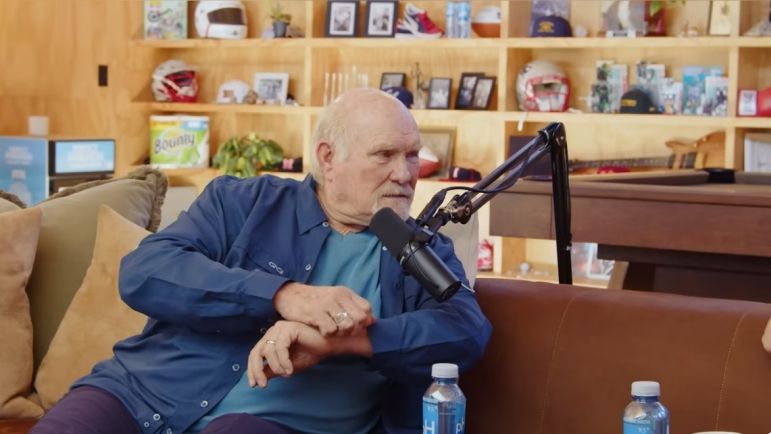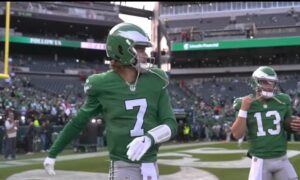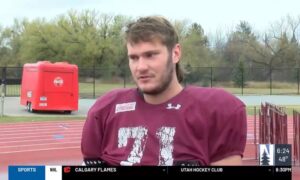When they say they don’t make ’em like they used to, that sure as heck applies to NFL quarterbacks. No disrespect to Patrick Mahomes, Josh Allen, or any of the league’s great quarterbacks. They do special things every single week. One thing they don’t do? Call their own plays.
Terry Bradshaw did.
Sitting down with former New England Patriots WR Julian Edelman, Bradshaw said he was proud to be the Pittsburgh Steelers quarterback and play-caller on their dynasty run.
“I ended up calling all my plays in college,” Bradshaw told Edelman. “I called all my plays in the pros and not realizing that people don’t call their plays. That is one of the things about my life I get the biggest kick outta saying I call my own plays. Brady didn’t call his own plays. He flipped a card.”
Quarterbacks calling their own plays was standard fare back in Bradshaw’s day. There was no official offensive coordinator and no radio communication into his headset. The NFL did have “messengers,” players who would run to the sideline and get the play from the coach, racing back to the huddle and relaying the message (Chuck Noll was one of the first under head coach Paul Brown), but Bradshaw still had the freedom to run the show game-to-game.
He isn’t taking all of the credit. Bradshaw explained play calling became a democratic endeavor.
“Get in the huddle with your guys and scratch your head and go, ‘I’ve already called this play twice.’ And [John Stallworth] would say, ‘let me run a post option on the offside. This guy’s set up for the post.’ I’d say, alright, let’s run the same play. You do the post option. And [Lynn Swann], if I can squeeze that into you, if he stays back, I’ll go to you on top of the dig. But if not, if he falls over, I’ll go to you [Stallworth].”
And it worked. Though not instantly. In part, because the Steelers were built from the ground up, Noll tore down the roster he inherited and used the draft to create a nearly entirely new team. That didn’t occur in one offseason. And Bradshaw, the weight of being the No. 1 overall pick of the 1970 draft, had to adjust to calling plays at the NFL level where everyone was bigger, faster, stronger. He, like the team, struggled in the early going. But he found his footing and became one of the best passers of his era.
“I say I called plays, but we called plays. Because I involved everybody.”
Listening to Bradshaw break it down for Edelman, it’s easy to see why the “dumb guy” label attached to Bradshaw is a complete misnomer. Going through each route, how to beat it, remembering calls from his playing days like RB Franco Harris asking Bradshaw to run 92 trap. It’s an element of football lost forever, a version the game will never go back to. In many ways, it was backyard football, a bunch of buddies just figuring things out one play at a time. No technology, no hyper-focused game plan, just eyeballing how long they had to go on third down.
“I just sat there and looked at the marker and the placard would move down. I go look over. ‘What do y’all think? That five yards or four? Looks like five to me. That’d be long-yardage, won’t it? What do y’all think we ought to run here?'”
Catch the whole clip at the link below.








